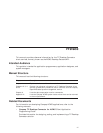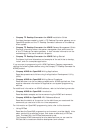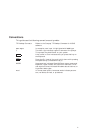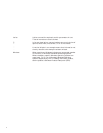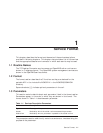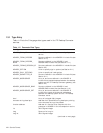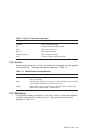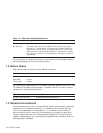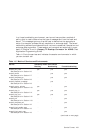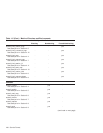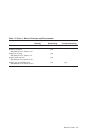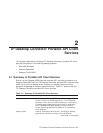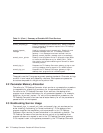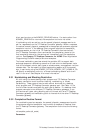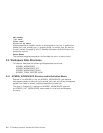
In a forced nonblocking environment, service routines provide a method of
polling that is used to determine the type of message sent from the back-end
server. This message type may then be used to determine the appropriate
action (for example, process the call completion or exchange step). The forced
nonblocking software provides additional routines to access call completion and
exchange step arguments. These session environments are explained in more
depth in Chapter 2 and in Compaq TP Desktop Connector for ACMS Client
Application Programming Guide.
Table 1–5 lists the services and indicates the session environments in which
you can use each call.
Table 1–5 Matrix of Services and Environments
Service Availability within Environment
Blocking Nonblocking Forced Nonblocking
acmsdi_call_task
See description in Section 2.6
yes yes yes
acmsdi_cancel
See description in Section 2.7
- yes yes
acmsdi_complete_pp
See description in Section 2.8
- yes yes
acmsdi_dispatch_message
See description in Section 2.9
- yes -
acmsdi_return_pointer
See description in Section 2.10
yes - yes
acmsdi_sign_in
See description in Section 2.11
yes yes yes
acmsdi_sign_out
See description in Section 2.12
yes yes yes
acmsdi_poll
See description in Section 4.13
- - yes
acmsdi_complete_call
See description in Section 4.2
- - yes
acmsdi_bind_enable_args
See description in Section 4.3
- - yes
acmsdi_bind_send_args
See description in Section 4.9
- - yes
(continued on next page)
Service Format 1–5



